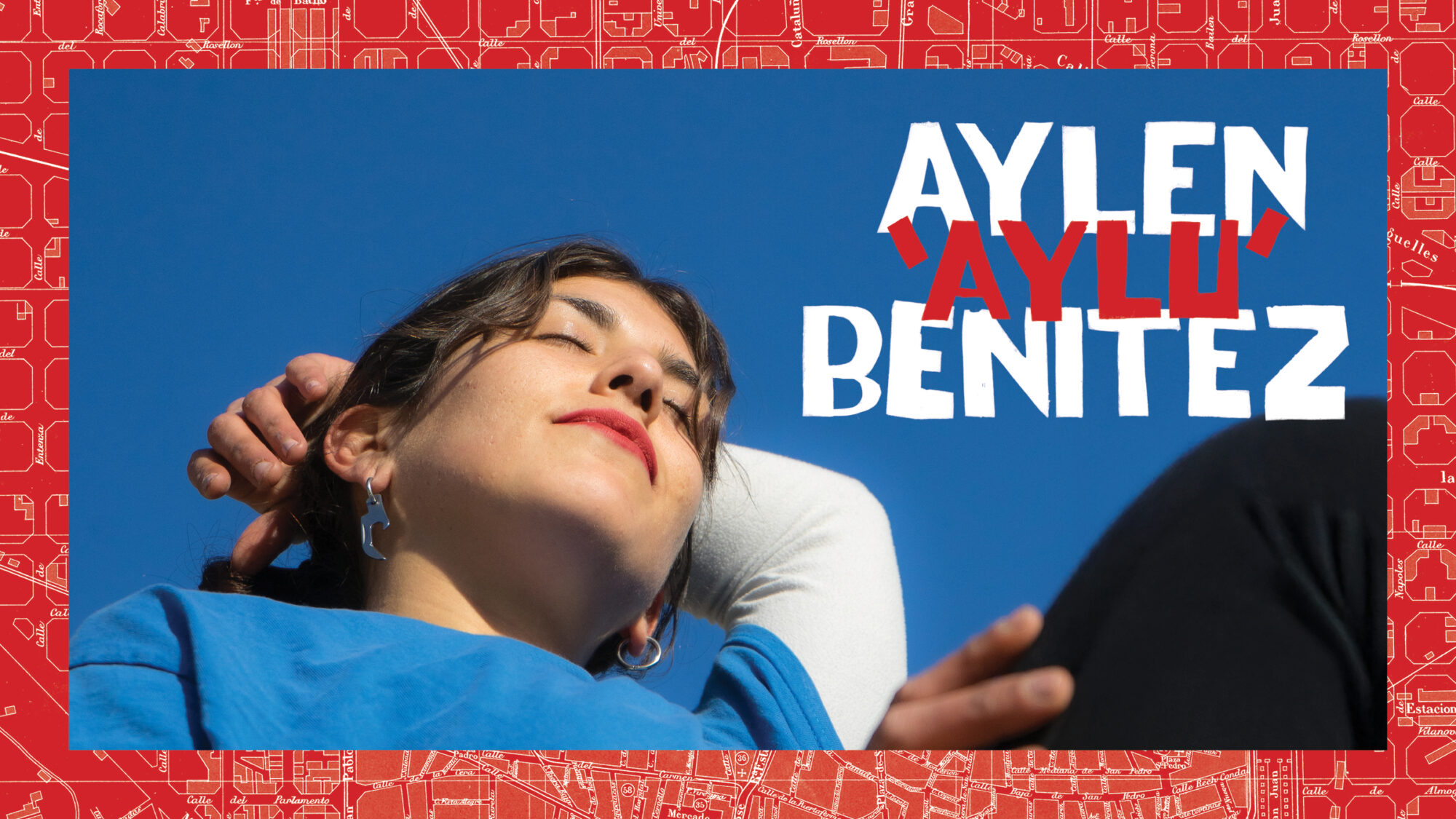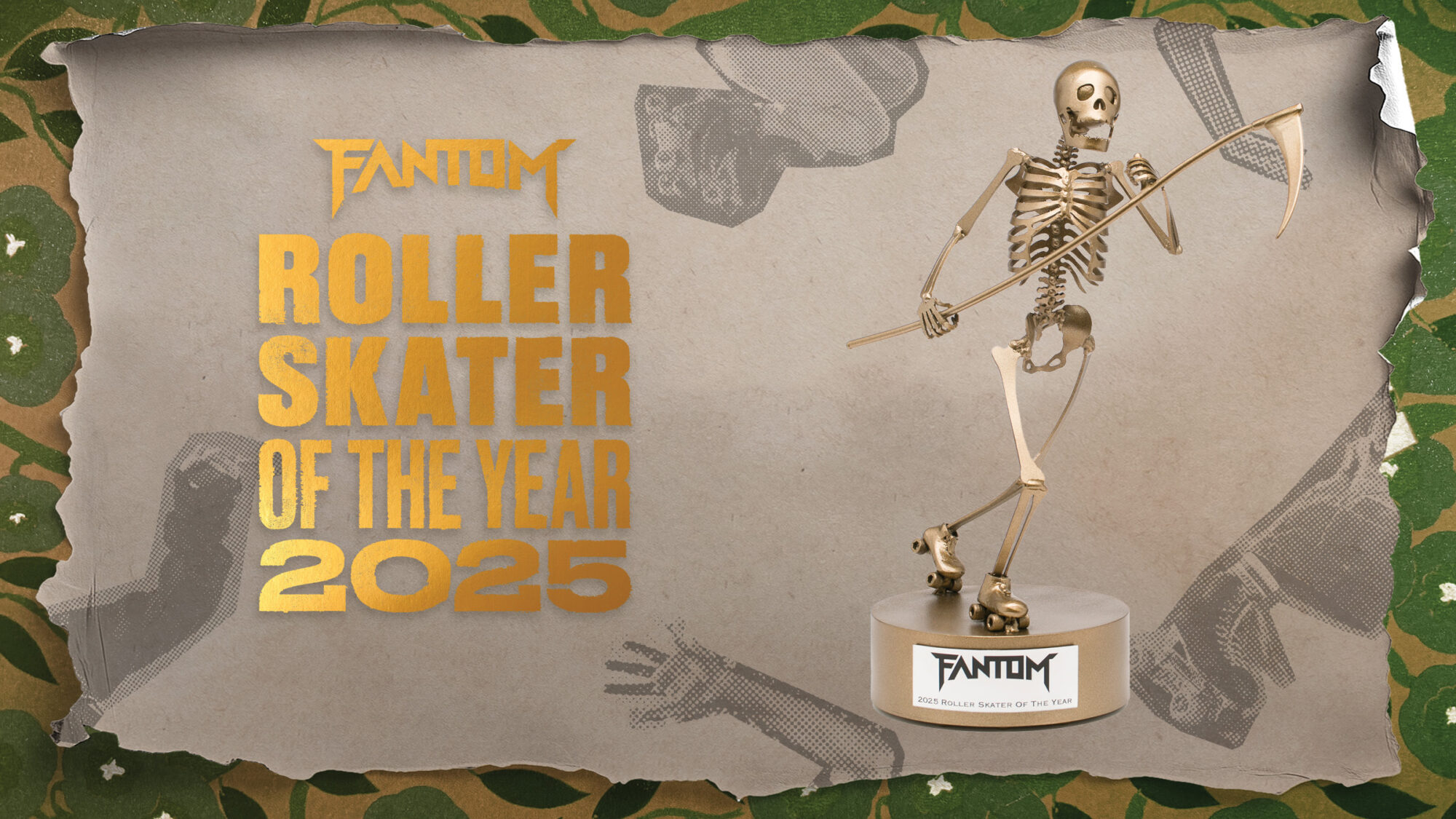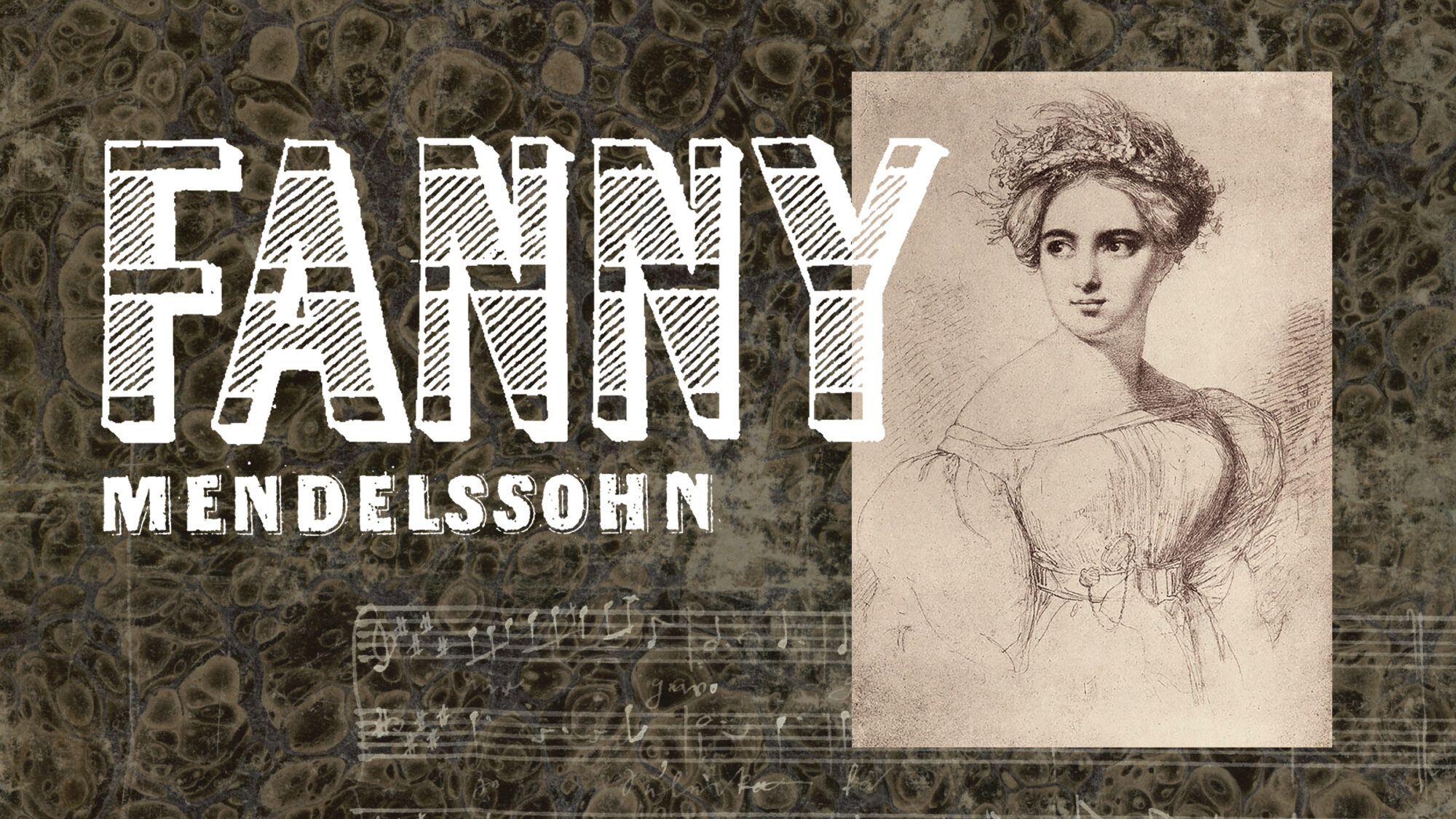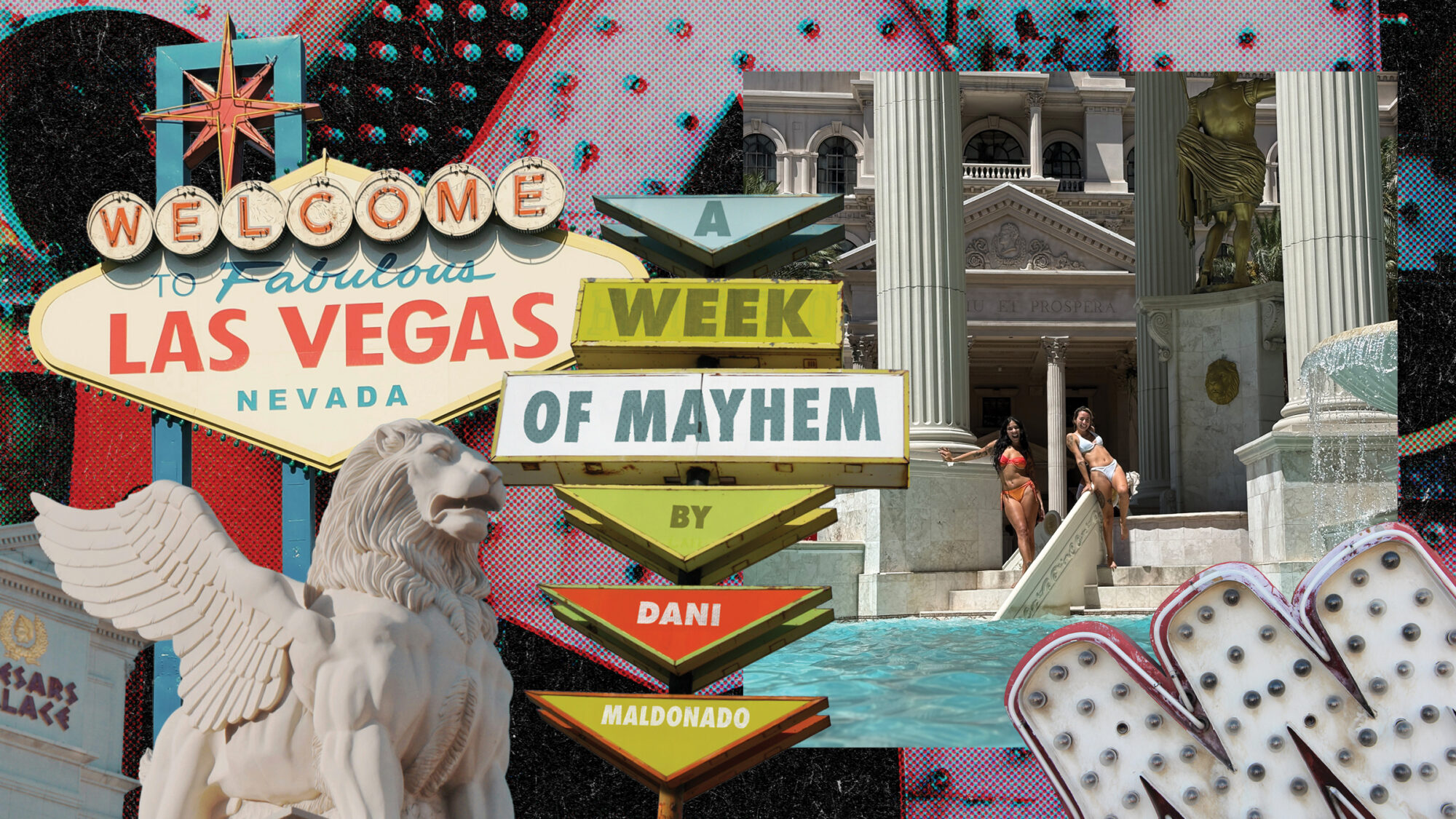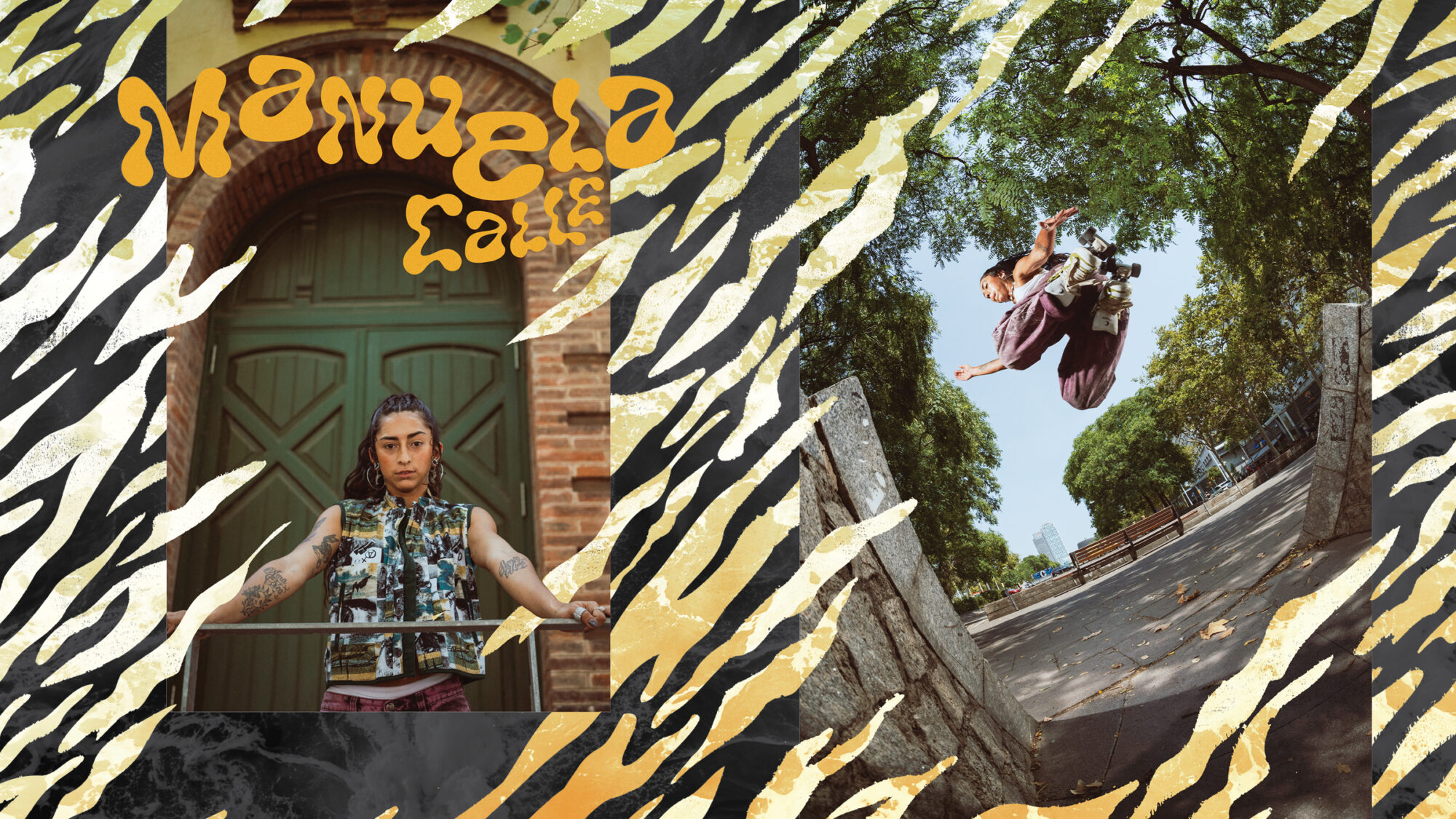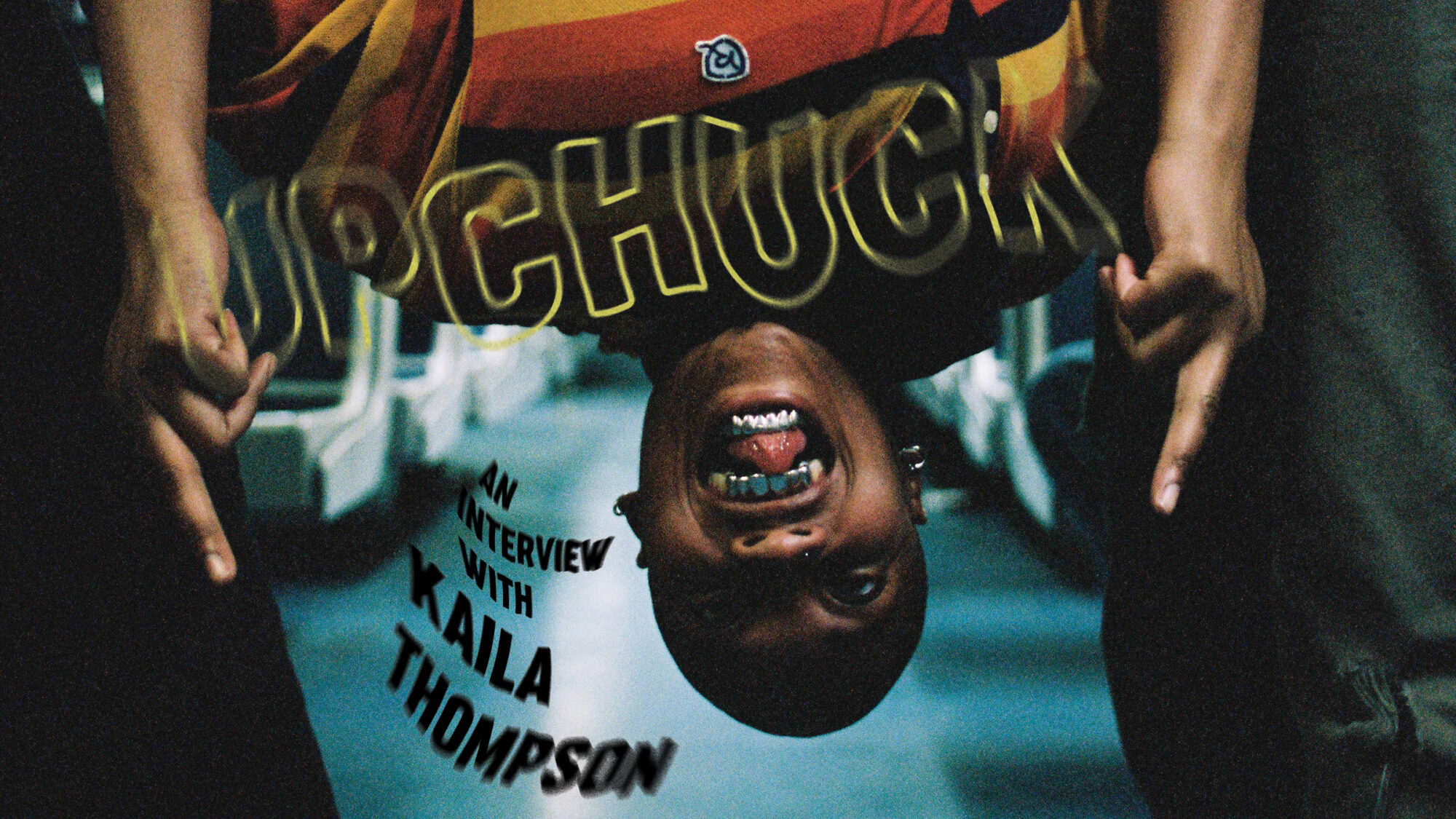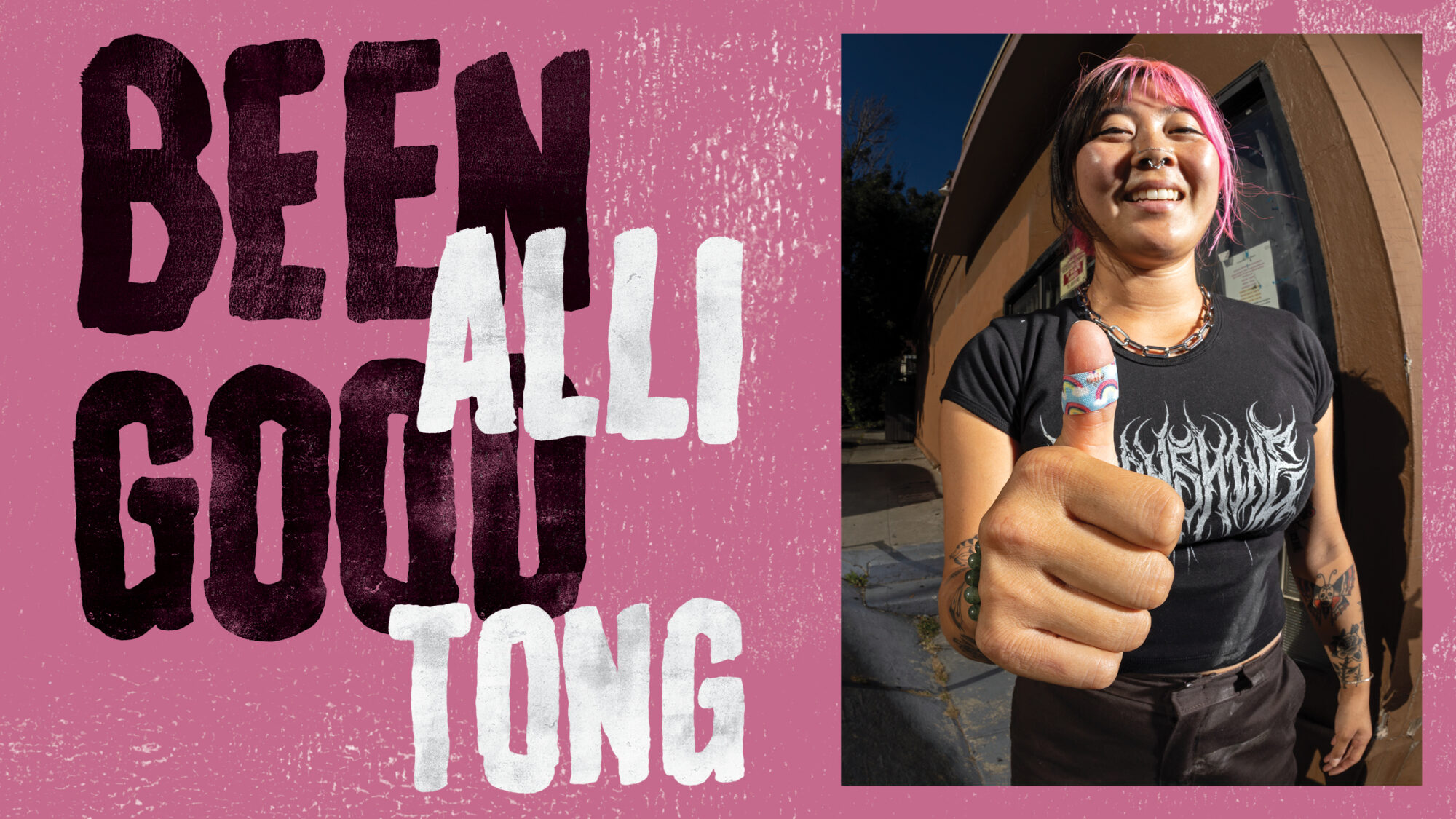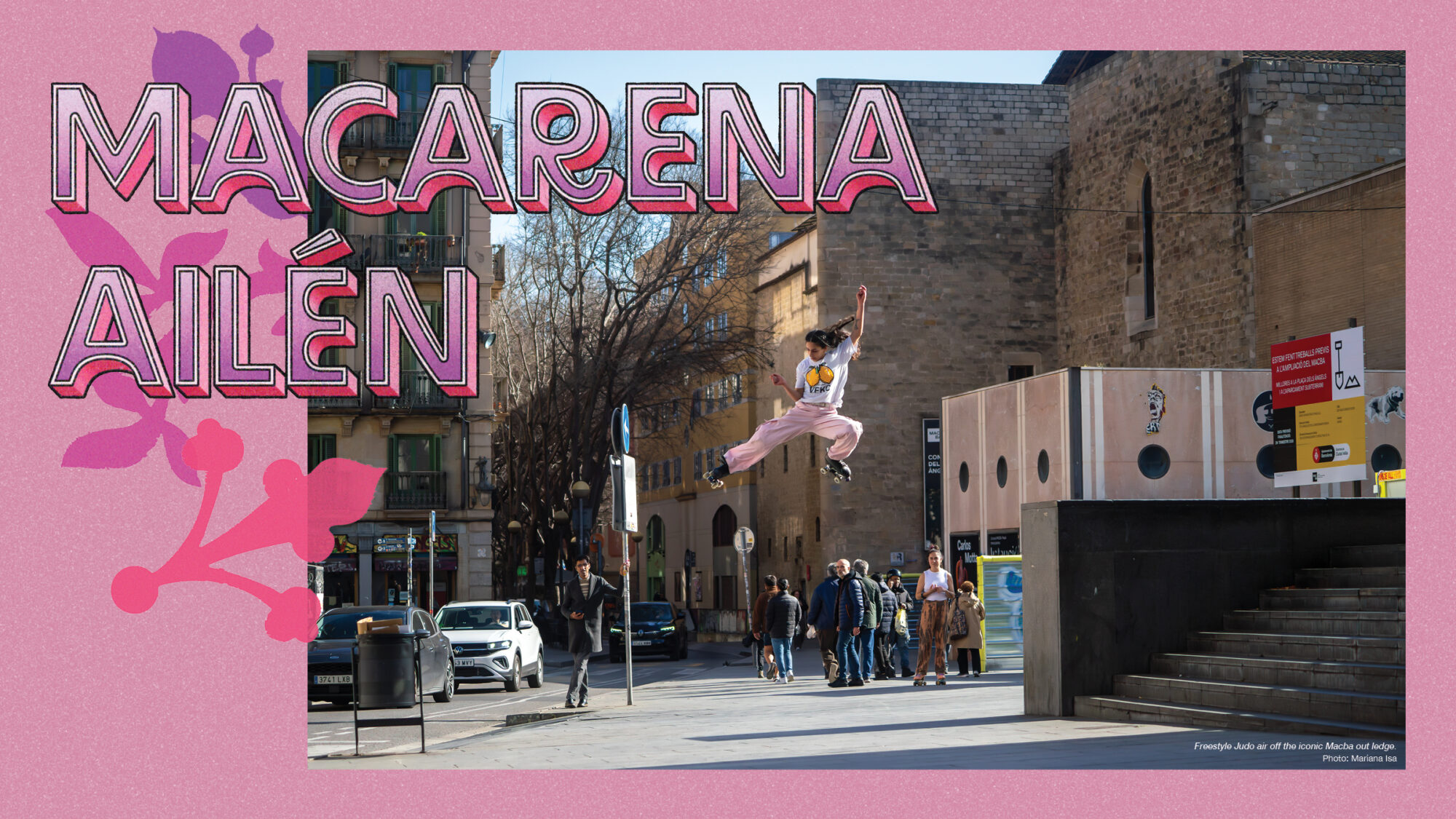Photography by Mariana Isa
After the recent release of her skate part Impacto, we were eager to get to know Aylu a bit better. She would rather die than give up skating, so it’s no surprise that her thoughts and connection with roller skating run deep. With a unique perspective and drive, she left us feeling inspired.
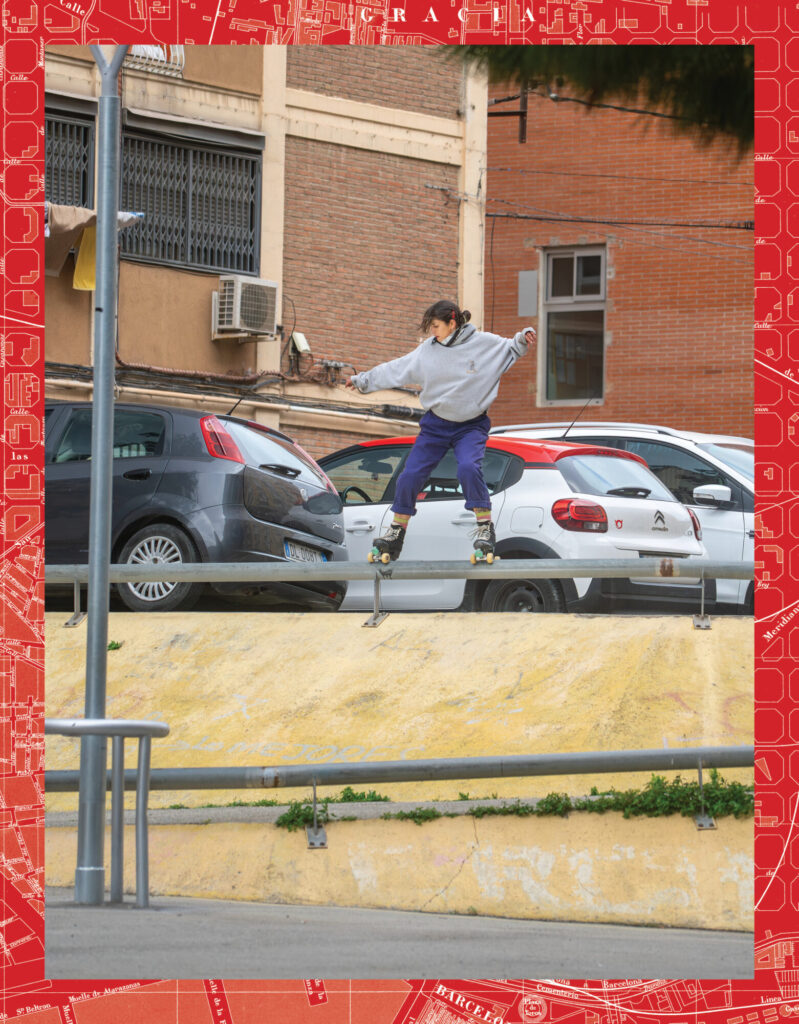
Do you currently live in Barcelona?
Yes, I’ve lived here for six years,
And you moved there from Argentina?
Yeah, Buenos Aires, I’m from there.
That’s something really common, right? Like, there are a lot of people from Argentina going to Barcelona.
Is that crazy stuff? Yes, I think it’s because the girls have a lot of friends. They are skaters. So we watch a lot of videos of skate, you know, and mostly from Barcelona. And it’s a really skateable city.
So, the skaters were like, “Okay, we’re going to fucking Barcelona. We’re out of here.”
I think, yes. Almost because of the language, you know, it’s like an easier transition.
Did you ever visit Barcelona before you moved or you were just like, “Fuck it?”
No, I just moved here. I moved and I had knee surgery, so I came here to do rehabilitation. There was no place, no one who skated, so I started doing rehabilitation here alone with a bicycle. My boyfriend at the time was working, I was sorting out my paperwork, I couldn’t work, I couldn’t skate. I was focused on training every day to get back to skating, you know? It was kind of crazy, and it was also my first time in Europe. So everything was new, and well, it was a very nice experience. And I think skating helped me a lot to make friends, to find places, to find spots.
At first, I wasn’t a very social girl. I grew up in my small town, and I always had my lifelong friends. So I never really needed to make new friends. I was always going back and forth with my same friends. And thanks to skating—of course, I love spending time by myself too—but at some point, skating alone was always hard. And there were almost no girls who skated, neither in skateparks nor anywhere. So, in the end, I had to become friends with the skaters.
Did you experience COVID in Barcelona? How was it? How was the atmosphere?
Si, si, I did. It wasn’t too bad because I had a job. Here, we didn’t work, but we still got paid, so we weren’t really spending money since there wasn’t much to do. And we would always sneak off to the skatepark or the streets. Somehow, we always found a way to skate in the streets. I’ve always liked street skating and here in Barcelona, it’s easy—even just from my house to the skatepark, it’s like a paradise for skating. So I spent COVID here, but I was with my roommate, who was really cool. I could skate, I didn’t have to go to work. It was like an introspection, you know? A good introspection, actually.
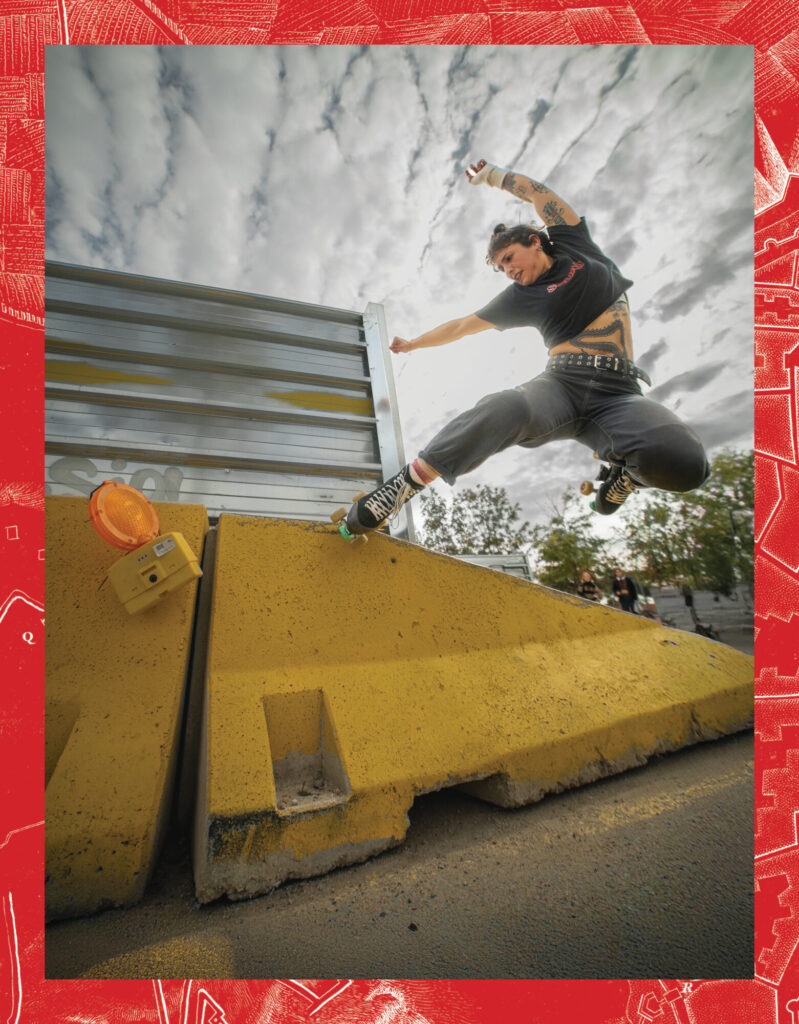
Wow, I love roller skating. You can do it everywhere! When did you start skating?
In Argentina, I did roller derby. And, well, sports in Argentina were always amateur, but I was on the national team, in the biggest league. Free training on Sunday mornings, games in the afternoon, going to the gym every day, training with my team. So, it was hard to go to the skatepark, you know?
In Argentina, there is a girl named Mariana: Marina Giorno. And one day, in Buenos Aires, more than 10 years ago, there was this big mega-ramp event, Tony Hawk was there. So I went, and Marina was there with her skates, colorful hair, all crazy, such good energy. And I was like: What is this? I freaked out. Honestly, I always wanted to do it while I was doing derby, but derby was way too demanding. And well, that day I met Marina, and it was like, wow, amazing.
I started going more to the streets, to the spots, doing everything with my derby skates. And then I had DIY skates, I would skate Nikes and things like that. I really enjoyed that stage too, it was really, really nice. I started here in Barcelona, and since I didn’t know anyone—there was literally no one—I started at a skatepark. And that’s where I began doing my skatepark tricks, ta ta ta, in the bowl. I loved it, it was great and all, but at some point, I wanted to do street skating. I got tired of just that.
And with quad skating—well, I’ve been doing it for many years now—I feel like there are always trends. I don’t want to call them fads, but at that time, front flips and backflips were really trending. Girls were fully into bowl, bowl, bowl, I was like, “No, I want to do something else—I want to do street skating”. Of course, sometimes you doubt yourself—because of Instagram or whatever, but I told myself, “No, Ailu, do what you love to do.” If you want to do something different, you have to follow your own path, you know?
Yeah, Yeah.
And then, one day, I woke up—I was at the skatepark—and I got an email from Chaya saying they wanted to sponsor me, that they would send me a contract and everything. For me, it was like, “Yes!” It felt so good to see that following my instincts and doing what I loved actually paid off.
And after that, well, I just kept skating and doing what I enjoyed. Of course, we all go through highs and lows, moments of motivation, doubts, but in the end, I just kept going. I think it’s important to do what comes from the heart. You might see someone land a super-technical trick, like a 540 or something, but with a robotic expression, so structured, you know?
And then, maybe someone else comes along and does a simple 360 over something, which might seem easier depending on who’s watching, but they do it with such passion and energy that it ends up feeling way more fulfilling.
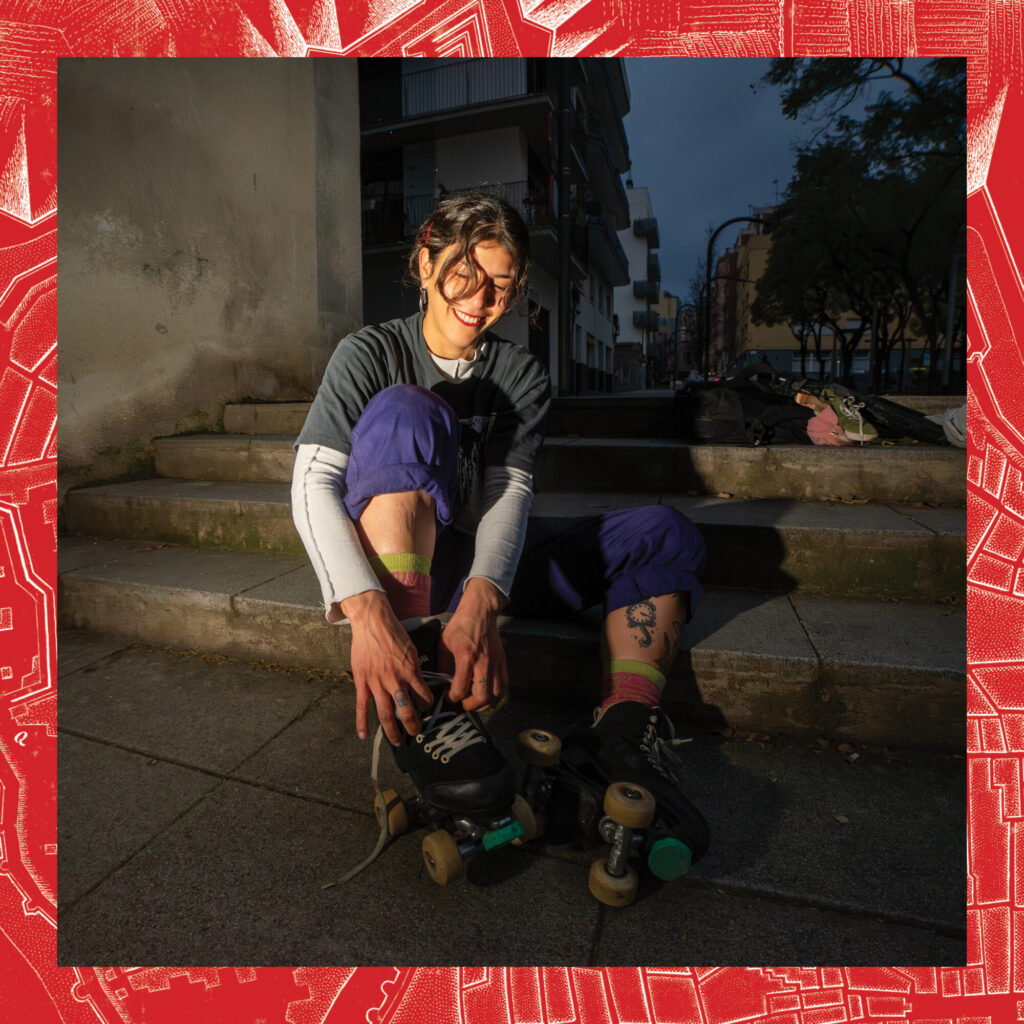
For me, sponsors are validating. It feels really good, and you feel like you worked hard and someone noticed. But at the same time, if you don’t have one or if you lose a sponsor, it… hurts like, “Oh wow I’m not doing good anymore.” It can be bad and good at the same time.
Some people get it in the form of a sponsor, some in the form of friendships, others in personal satisfaction, and some in learning experiences, you know? But skating will always give you the best it has to offer if you give it the best you have inside, you know? And something will always come your way, in one form or another.
For me, being around so many women, and everyone wants the same thing—I mean, everyone wants to be the best, or do the hardest trick, or something that looks like, “Wow!” But I always just stay super chill, like, I just stick to my thing. I’m not going to kill myself trying to show off or prove that I can do it. I prefer to have my own style, my own flow.
Also, skating has given me many other personal satisfactions. I think for all of us, at some point in life, we say, “Wow, thank god I skate,” because it teaches you to endure physical pain, emotional pain, to be patient, to manage so many things. I think skating is important beyond sponsorships. And I understand—also, now I’m already 30, you know? I grew up in a world without social media. So I kind of have both perspectives. I know that life can be lived without it and without sponsors because I did it for a long time. So maybe I don’t give it that much importance, but I know that many girls maybe even start skating just to get a sponsor or to have a photo with someone. But I stay completely out of all that—I love skating from a different perspective. I love skating from another point of view.
Yeah, exactly. When did Chaya ask you about sponsorship?
The first boots I got from Chaya were the pink Barbie Skates. Amazing, I loved them, oh my god. And at first, it was just for a shoot, for some photos. It was like, “Hey, can we do a photoshoot?” And I was like, “Yeah, of course.” And then they said, “Keep the skates.” So those were the first ones and then I kept getting more. And now we’re working on this new model Dark Soul. We’re still adjusting some things. The fact that Chaya trusted me and that I, in turn, trusted them was important. At first, of course, they had some flaws, some shortcomings—like all companies do, especially when they’re entering something completely new. But they also listened a lot to their skaters. We gradually gave them feedback, like, “This should be this way, that should be that way,” and they always had an open mind, listening and asking what we thought, what other skaters thought. They’re always looking to improve, and I think that’s important.
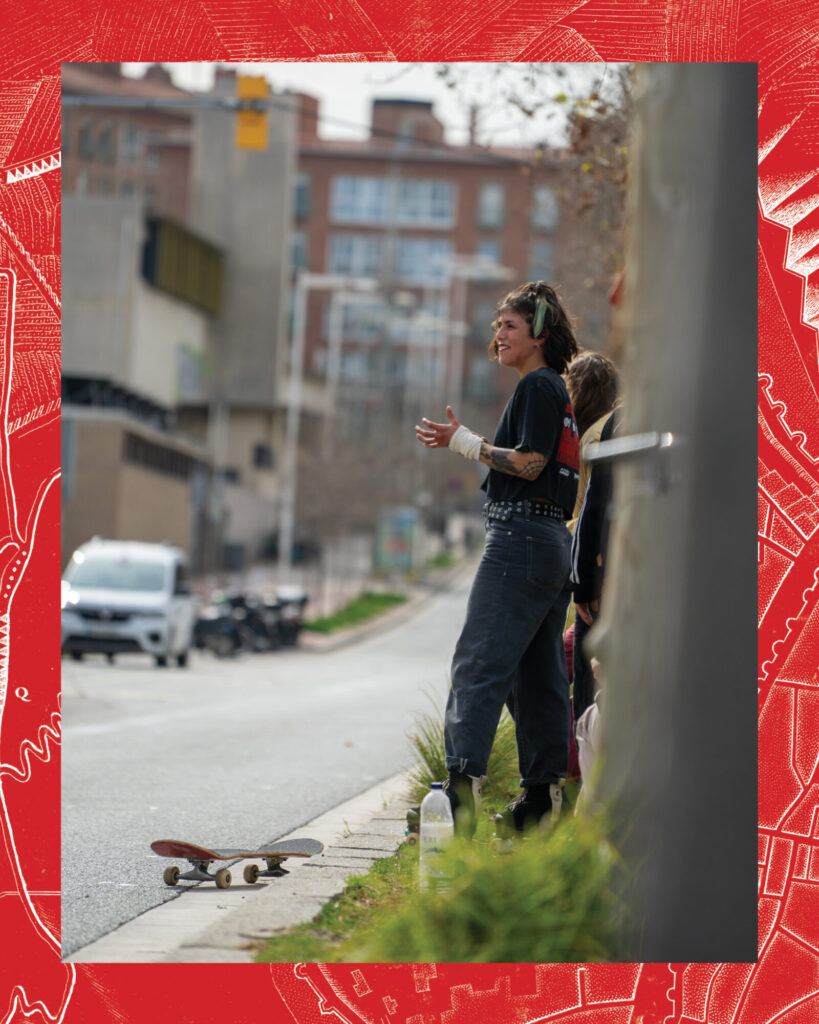
They’re not just back there making the decisions—they’re actually asking what works, what doesn’t work, what…
Exactly. In fact, this new Dark Soul skate I mentioned—I loved it. The only thing I would improve was the stiffness of the boot, and I told the owner of Chaya. I need a strong skate, and I told them I would love for them to try making it tougher. And he had no problem at all. He was like, “Look, Ailu, tell me what parts we need to reinforce.” And I marked the entire boot, basically all over in gold. And he said, “Okay, we’re making a test version of that.” And now they sent it to me! So yeah, they’re really open.
Do you think there’s an opportunity for you to have a pro boot? Or is that a secret?
Well, I don’t know, there are things, things that can be done, you know? I mean, I don’t know. But yeah, I think it’s really great that they listen to the skaters and that we’re working on improving every aspect of the skates, making them affordable but also functional. That you can go out skating with those skates and they actually work. And so far, they’re working really well. Maybe there will be a Dark Soul 2, I don’t know.
I’ll keep an eye out! You mentioned it but I didn’t stop you. You said you had knee surgery? Was it from skating? I have knee surgery at the end of the month. I’m scared!
What do you have to get surgery on?
My ACL
Ah, yeah, the ligaments, right? Well, yeah, the same thing happened to me while doing a 180 on a pyramid, and when I landed fakie, my knee went inward, and my anterior cruciate ligaments tore.
That’s what happened to me!
Yeah, you see? You see? You have to train a lot. It’s necessary.
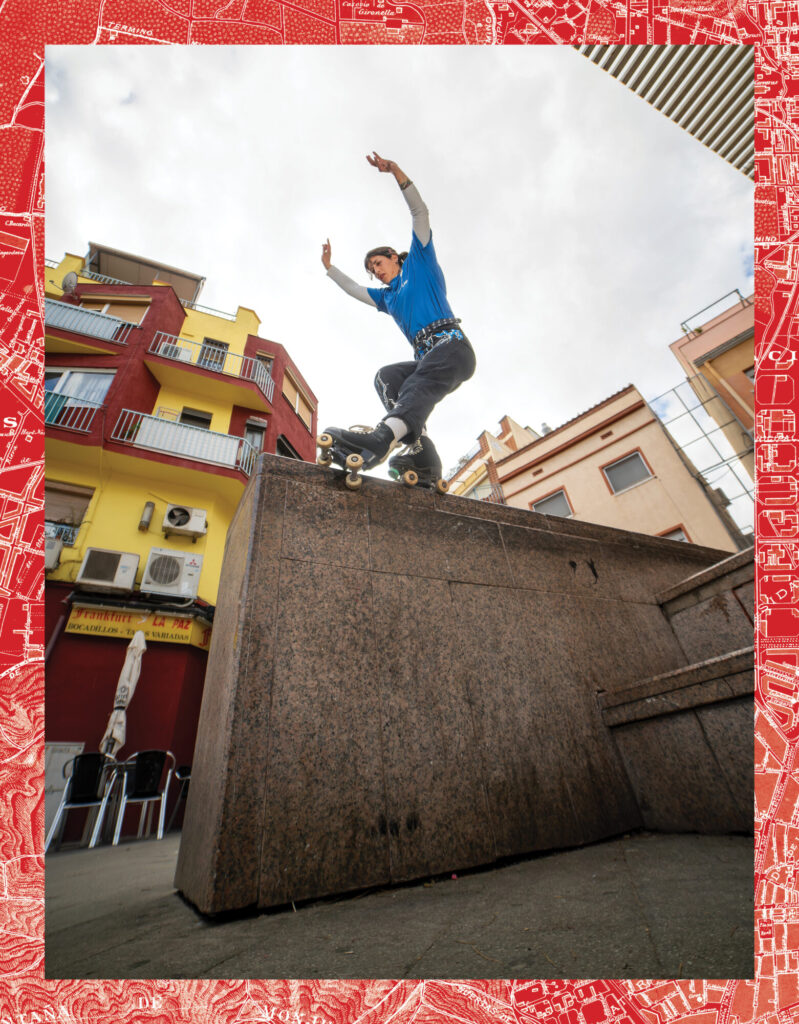
What are some tips? For me, it’s the mental part, like I know I’m going to struggle mentally.
Take the surgery calmly, the post-op as well. After surgery, your knee will be completely immobilized, but day by day you’ll be able to move it more. Be very careful with recovery and do it properly, because recovery is just as important as the surgery itself—it’s 50/50. It’s really important to heal properly, train your legs a lot, and regain confidence in your skating and in yourself.
When you went back skating after did it take a while for your confidence? Like maybe our bodies are ready to go back but mentally, our confidence. How was it gaining your confidence back? Cause you’re jumping, you’re doing everything. I would have never, never known.
That happened to me with confidence. Every time I had to slide something frontside or whatever, I would always put one foot down first and then the other. That was the biggest mental barrier I had because I used to love doing it with both feet. So yeah, that was mental, and it took me like two years, something like that, until I finally said, “Enough, enough, enough, enough.” Because I kept doing it with one foot, then the other until I finally realized it’s the same and actually safer with both feet. That was a pretty big mental barrier for me to break through.
After that, doing gaps, stairs, and all that—I wasn’t scared. But when I filmed my video part, for the last trick, I jumped off a rooftop, and I felt it, yeah. I really felt it. I hurt my foot—I fractured a little bone. It was because I had landed it holding on with my hand and I wanted to do it without using my hand. I kept trying, and after nine attempts—yeah, my body felt it. So now I’m also working on getting over that little fear again when it comes to doing gaps.
Just a little trauma.
Yes, yes, a little bit of trauma is fine, we all have that, but then it’s like, you can do it, you can do it, you can do it, and always complement it with training, right? Because we’re not doing things that are easy or trivial. So, I think it’s important to train well to avoid injuries.
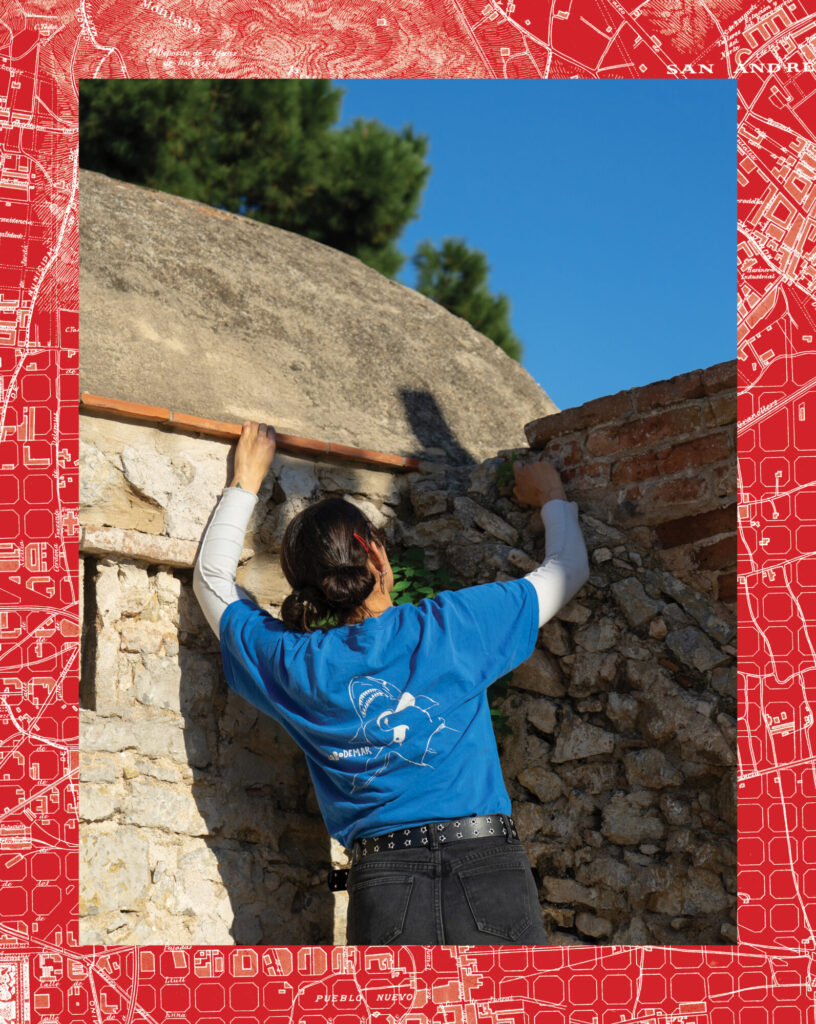
Every spot is different. It’s different, I mean, a 180 here and a 180 there can be totally different.
Totally different, and also, since we’re used to skating in the streets, of course, you have a branch, a loose tile, a hole in the ground.
Right.
It’s really fun, but at the same time, there are so many things to keep in mind to avoid getting hurt. When we go street skating, I think we have to be really focused. You can’t just say, “Oh well, yeah, I’ll try,” without thinking that if you fall, you’re going to get hurt, even if it’s something easy. So, it’s about pushing yourself to stay calm, and having solid training to back you up.
Well, speaking of the topic, last year you released Impacto. That was your first project?
Si, that was my first project. It was nice to do it, but at the same time, at that moment, my friends were working, and my filmer liked to go out in the morning, and so did I, like at 9 a.m. So basically, I filmed all the shots alone with the filmer. So, you know, that takes time. I mean, you see the spot in a photo or video, and you think, Ah, great, I’ll go and do it. Yes, yes, you’ll do it, but first, you have to test the spot with chill tricks, and you also have to build up that adrenaline.
To be able to do the trick with motivation, it’s like something that builds up with each attempt. So yeah, it was good, but I also realized that going out to film is not the same as just going out to skate—going out to film alone, even less so. Luckily, Fabri Abreu, my filmer, is super, super supportive. He would jump off spots in sneakers just so I would go for it. He would give me his hand, help me with everything, tell me, “Come on, you can do it,” all that. He even created some lines for me.
He made the whole experience really smooth and enjoyable.
Ah, I can’t believe you did that with no friends. Because it’s a pressure like, “OK, what do you got?” I can’t imagine doing that without friends.
Of course, yeah, it was crazy, it was really crazy. But it was also a project I wanted to do and my filmer was going on a trip. I had that free time without work, like six months, but in the end, it took nine. And well, that’s how it happened, that’s how it worked out. It was a wild experience, facing myself, just me against the street, you know? Like, “Alright, Lu, you wanted to do this? Well, here it is, right on the edge—go for it.” Motivating myself, learning to control my own thoughts, staying positive, feeling the adrenaline build up. Just me against that feeling, this is what you wanted, so go for it.
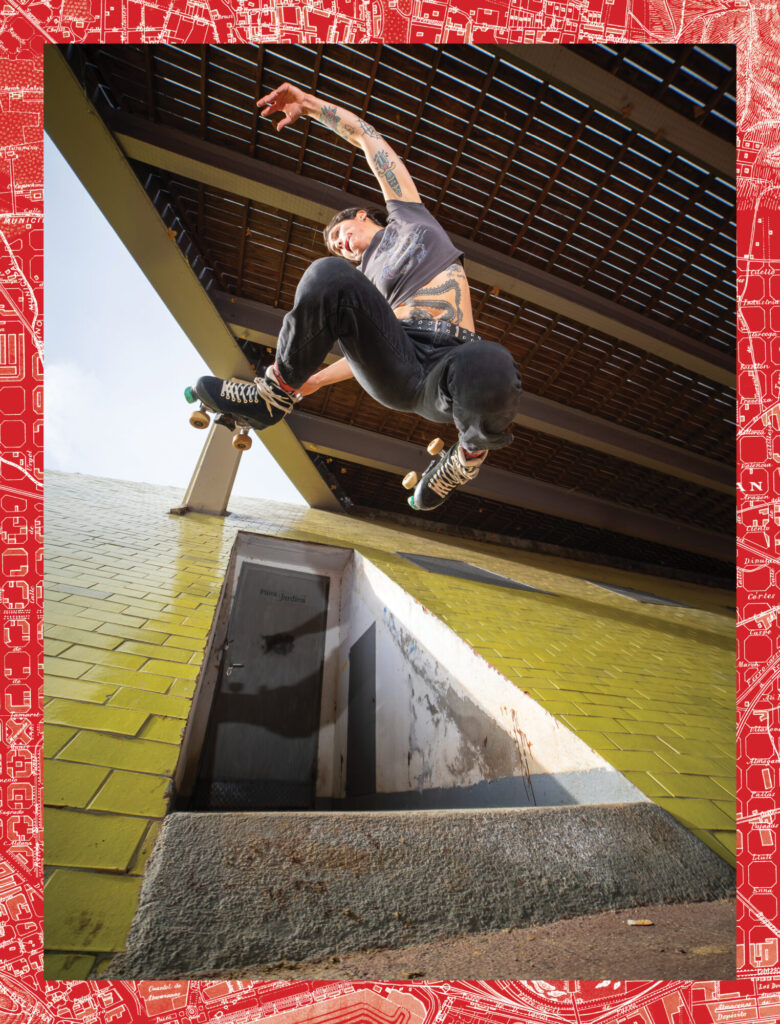
Oh shit. Wow. Do you do anything else? Another passion?
Look, I love cooking. I love cooking at home—buying lots of vegetables, meat, delicious ingredients, and making meals here. I also love filming—filming skating is something that really makes me feel good. And being in nature, you know? But yeah, I’m completely obsessed with skating, too. Skating, for me, is everything. I don’t know, it just goes beyond different layers of my life.
That’s number one. You’re like, “I like cooking because then I can go skate, I like filming because I like roller skating.” [Laughs] I love it, I love it.
